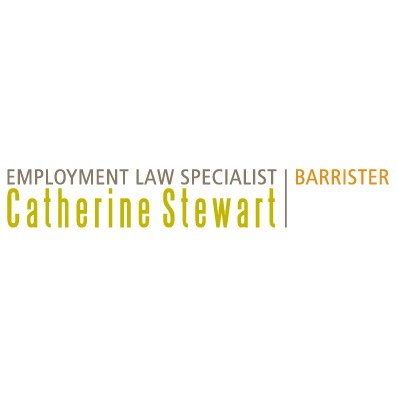Best Employment Benefits & Executive Compensation Lawyers in Auckland
Share your needs with us, get contacted by law firms.
Free. Takes 2 min.
List of the best lawyers in Auckland, New Zealand
About Employment Benefits & Executive Compensation Law in Auckland, New Zealand
Employment Benefits & Executive Compensation encompasses a range of legal and regulatory considerations regarding employees' remuneration that go beyond their regular salaries. In Auckland, New Zealand, this field is influenced by local laws as well as global trends, focusing on foreseeing employee benefits, bonus structures, stock options, retirement plans, and executive pay packages. Understanding these elements can play a crucial role in employment negotiations and maintaining compliance with employment standards. Navigating this landscape can be complex, involving a thorough understanding of employment contracts, tax implications, and regulatory compliance.
Why You May Need a Lawyer
There are numerous scenarios where a lawyer specializing in Employment Benefits & Executive Compensation may be necessary. Whether you are an employer designing competitive compensation packages, an employee negotiating a new contract, or a business dealing with regulatory compliance, legal expertise can safeguard your interests. Common circumstances include:
- Drafting and reviewing employment contracts
- Structuring executive compensation packages, including bonuses and equity plans
- Compliance with employment laws and tax regulations
- Resolution of disputes related to benefits or compensation claims
- Advising on redundancy and termination packages
Local Laws Overview
Employment Benefits & Executive Compensation in Auckland is primarily governed by the Employment Relations Act 2000 and the Holidays Act 2003, among other key legislations. Essential aspects of these laws include:
- Minimum Employment Standards: setting floors for wages, holiday entitlements, and leave.
- Parental Leave: protections and provisions for employees taking parental leave.
- Employee Share Scheme Regulations: guiding the rules around providing company shares to employees.
- Taxation of Benefits: implications for both employers and employees regarding by offering non-salary compensation.
- Fair Pay Agreements: collective agreements that can influence executive remuneration packages.
Frequently Asked Questions
1. What constitutes an 'executive' in relation to compensation plans?
In New Zealand, an 'executive' typically refers to senior-level management, which may include titles like CEO, CFO, and other key decision-makers within a company who are often eligible for specialized compensation packages.
2. Are employee benefits taxable in Auckland?
Yes, many employee benefits such as bonuses, company cars, and employer-provided health insurance are taxable. It is crucial to understand the specific tax obligations associated with each benefit.
3. How are stock options taxed in New Zealand?
Stock options are taxed as part of an employee's income at the point they are exercised. The specific details can vary, depending on how the stock options are structured.
4. What is the minimum annual leave entitlement under New Zealand law?
Employees are entitled to at least four weeks of paid annual leave each year, as per the Holidays Act 2003.
5. Can an employer change an employment agreement unilaterally regarding benefits?
No, any changes to an employment agreement, especially regarding benefits, require the employee's consent and should ideally involve consultation and negotiation.
6. What is KiwiSaver, and how does it impact employee compensation?
KiwiSaver is a voluntary, work-based savings initiative to help New Zealanders with their long-term saving for retirement. Employers are required to contribute a minimum percentage to employees' KiwiSaver accounts.
7. What happens to an employee's benefits if they are made redundant?
The specifics can depend on the employment contract, but generally, redundancy compensation should be provided, and certain benefits may continue for a period post-termination.
8. Are there laws protecting whistleblowers concerning executive compensation in Auckland?
Yes, the Protected Disclosures Act 2000 protects employees who reveal information about serious wrongdoing in their organization, which can include issues related to executive compensation.
9. Is bonus pay mandatory for employees in Auckland?
Bonuses are not mandated by law in New Zealand and depend on the agreements between the employer and the employee.
10. How can disputes over compensation be resolved in Auckland?
Dispute resolution mechanisms include direct negotiation, mediation through the Ministry of Business, Innovation and Employment, or litigation through the Employment Relations Authority or Employment Court.
Additional Resources
For further information and guidance, consider exploring the following resources:
- New Zealand Ministry of Business, Innovation and Employment (MBIE)
- The Employment New Zealand website for employer and employee rights
- The Inland Revenue Department (IRD) for tax-related inquiries
- Professional organizations such as the New Zealand Law Society
- The Human Rights Commission regarding discrimination and fair treatment in the workplace
Next Steps
If you need legal assistance in matters related to Employment Benefits & Executive Compensation in Auckland, New Zealand, consider the following steps:
- Consult with a specialized lawyer who understands the intricacies of employment law.
- Gather all relevant documentation, including employment agreements, compensation plans, and any correspondence related to the matter.
- Prepare a clear outline of the issues you face and the outcome you hope to achieve.
- Reach out to professional legal services, either individually or through a referral from a professional organization or government body.
- Consider mediation or negotiation as a first step towards resolving disputes before pursuing litigation.
Lawzana helps you find the best lawyers and law firms in Auckland through a curated and pre-screened list of qualified legal professionals. Our platform offers rankings and detailed profiles of attorneys and law firms, allowing you to compare based on practice areas, including Employment Benefits & Executive Compensation, experience, and client feedback.
Each profile includes a description of the firm's areas of practice, client reviews, team members and partners, year of establishment, spoken languages, office locations, contact information, social media presence, and any published articles or resources. Most firms on our platform speak English and are experienced in both local and international legal matters.
Get a quote from top-rated law firms in Auckland, New Zealand — quickly, securely, and without unnecessary hassle.
Disclaimer:
The information provided on this page is for general informational purposes only and does not constitute legal advice. While we strive to ensure the accuracy and relevance of the content, legal information may change over time, and interpretations of the law can vary. You should always consult with a qualified legal professional for advice specific to your situation.
We disclaim all liability for actions taken or not taken based on the content of this page. If you believe any information is incorrect or outdated, please contact us, and we will review and update it where appropriate.

















